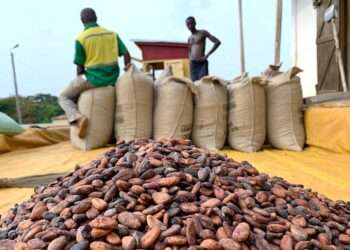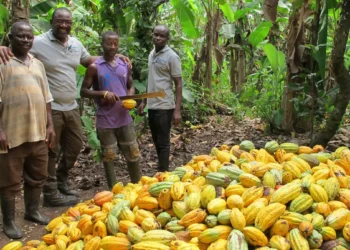The World Bank Board of Directors have approved an additional $40 million in IDA grants to the Accelerating Impacts of CGIAR Climate Research for Africa project (AICCRA), a significant step towards advancing climate-smart agriculture (CSA) technologies and addressing critical gaps in climate resilience and food security in Ethiopia, Ghana, Kenya, Mali, Senegal, and Zambia.
The new financing, allocated to CGIAR centers through the International Center for Tropical Agriculture (CIAT), will facilitate the validation and dissemination of CSA technologies and methods in the beneficiary countries, which represent various agro-ecological zones vulnerable to the impacts of climate change.
With this operation, farmers and livestock keepers will be equipped to predict and prepare for climate-related events more effectively, along with improved access to climate advisories directly connected to actionable response measures. This will enable communities to protect their livelihoods and the environment more successfully.
“We are committed to working closely with our partners to ensure that farmers and other stakeholders benefit from innovative solutions to address the challenges posed by climate change. Investing in climate-smart agriculture is essential for enhancing food security and economic development in a sustainable manner,” saidChakib Jenane, World Bank Regional Director for Sustainable Development.
The AICCRA project aims to strengthen the capacity of governments, regional organizations, farmers, and other relevant stakeholders and enhance access to and use of climate information services and validated climate-smart agriculture technologies in Africa.
The additional operation will finance the scaling-up of key activities in the six beneficiary countries, including knowledge generation and sharing, strengthening partnerships for delivery, and validating CSA innovations through piloting.
Most importantly, it will support the establishment of a Regional Hub for Fertilizer and Soil Health in West Africa, aimed at improving long-term soil health and climate resilience in the sub-region.
Other Partners Supporting the AICCRA Project
In addition to the World Bank’s commitment, other partners are stepping forward to support the AICCRA project. The Bill & Melinda Gates Foundation intends to commit $18.8 million in parallel financing to catalyze AICCRA’s impact. Furthermore, the Office Chérifien des Phosphates (OCP) will provide $5 million to support the new hub for soil fertility.
“These collaborative efforts reflect a shared commitment to addressing the challenges posed by climate change and soil degradation in Africa. The effects of climate change on the food security situation in Africa calls for regional solutions and strong partnerships to achieve sustainable impacts and reduce poverty on a livable planet,” said Boutheina Guermazi, World Bank Director of Regional Integration for Africa and the Middle East.
The International Development Association (IDA) is the World Bank’s fund for the poorest. Established in 1960, it provides grants and low to zero-interest loans for projects and programs that boost economic growth, reduce poverty, and improve poor people’s lives. IDA is one of the largest sources of assistance for the world’s 76 poorest countries, 39 of which are in Africa.
IDA resources help effect positive change in the lives of the 1.6 billion people living in the countries that are eligible for its assistance. Since its inception, IDA has supported development work in 113 countries. Annual commitments are constantly on the rise and have averaged $21 billion over the past three years, with about 61% going to Africa.
CGIAR (formerly the Consultative Group for International Agricultural Research) is a global partnership that unites international organizations engaged in research aimed to reduce rural poverty, increase food security, improve human health and nutrition, and sustainable management of natural resources.
READ ALSO: AngloGold Ashanti Names Jochen Tilk as Board Chairman























